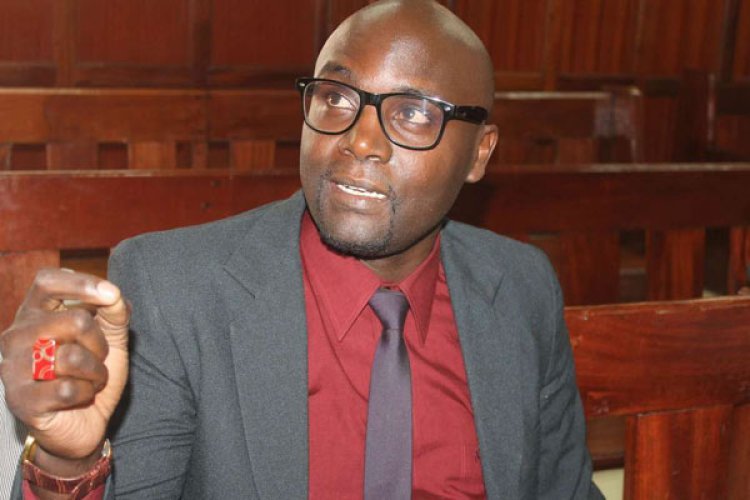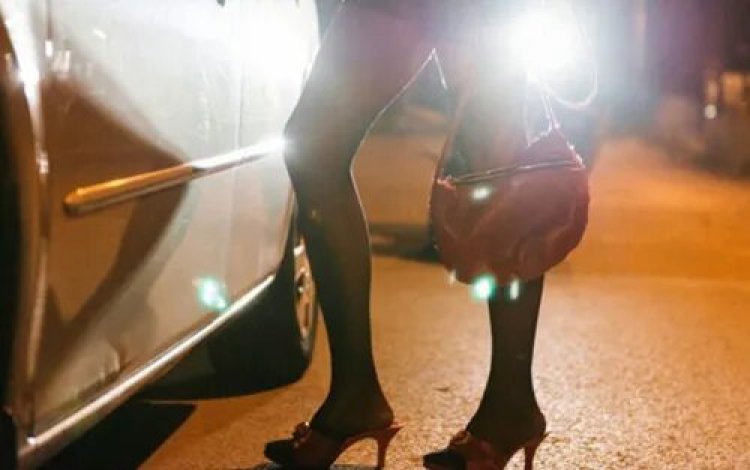Atheists Praise CJ Koome's Bill On Prostitution
The society supported the proposal to Sections 153, 154 and 155 of the Penal Code, which currently imposes a prison sentence of up to three years for sex workers.

The Atheists In Kenya Society (AIKS) has praised Chief Justice Martha Koome over a proposal to reduce punishment for prostitution through the Penal Code (Amendment) Bill, 2023.
The society, through its President, Harrison Mumia, supported the proposal to Sections 153, 154 and 155 of the Penal Code, which currently imposes a prison sentence of up to three years for sex workers.
"The Atheists In Kenya Society lauds Chief Justice Martha Koome for submitting a draft Bill to the National Assembly seeking to change the mode of punishment for prostitutes," AIKS' statement on Wednesday, October 25 read in part.
"Prostitution, according to this draft Bill, will still be an offence, however not punishable through imprisonment but through the use of alternative modes of handling petty offences. This is progress."

Atheists in Kenya Society (AIKS) president, Harrison Mumia. /THE STAR
The atheists further advised Koome to grant sex workers more freedom, stating its position that prostitution should be decriminalized and in fact, legalized.
"Sex workers deserve the same legal protections as anybody else. They should be able to maintain their livelihood without fear of violence or arrest, access health care and other services without discrimination, and seek justice when they are harmed.
"Decriminalization would help bring sex workers out of the dangerous margins and into the light where people are protected - not targeted- by the law," added the statement.
The Judiciary is proposing to delete the three sections in the Penal Code meaning the offences, should the bill be assented to Law by President William Ruto, would cease to exist.
Section 153 currently defines male prostitution as a male person who lives on the earnings of prostitution or is proven to live with a prostitute or has aided in the act of prostitution and is guilty of a felony.
"The principal Act is amended by deleting section 153 which states: Every male person who knowingly lives wholly or in part on the earnings of prostitution; or in any public place persistently solicits or importunes for immoral purposes, is guilty of a felony," reads part of the Penal Code.
"Where a male person is proved to live with or to be habitually in the company of a prostitute or is proved to have exercised control, direction or influence over the movements of a prostitute in such a manner as to show that he is aiding, abetting or compelling her prostitution with any other person, or generally, he shall unless he satisfies the court to the contrary be deemed to be knowingly living on the earnings of prostitution."
Section 154 of the Penal Code sees the same offence applied to women.
"Every woman who knowingly lives wholly or in part on the earnings of prostitution, or who is proved to have, for the purpose of gain, exercised control, direction or influence over the movements of a prostitute in such a manner as to show that she is aiding, abetting or compelling her prostitution with any person, or generally, is guilty of a felony," reads part of the Penal Code.
Furthermore, Section 155 provides that in any house that is used for the purpose of prostitution and the inhabitants live on the earnings of the act, a magistrate is required to issue a warrant authorising any police officer to enter and search the house and arrest such persons.
In Kenya, a country where 34 to 42% of the population lives below their means, according to the World Bank, prostitution has become a rampant survival strategy, despite being frowned upon.
Across the country, more than 200,000 workers operate in the sex business. Nairobi alone has more than 40,000 sex workers.







